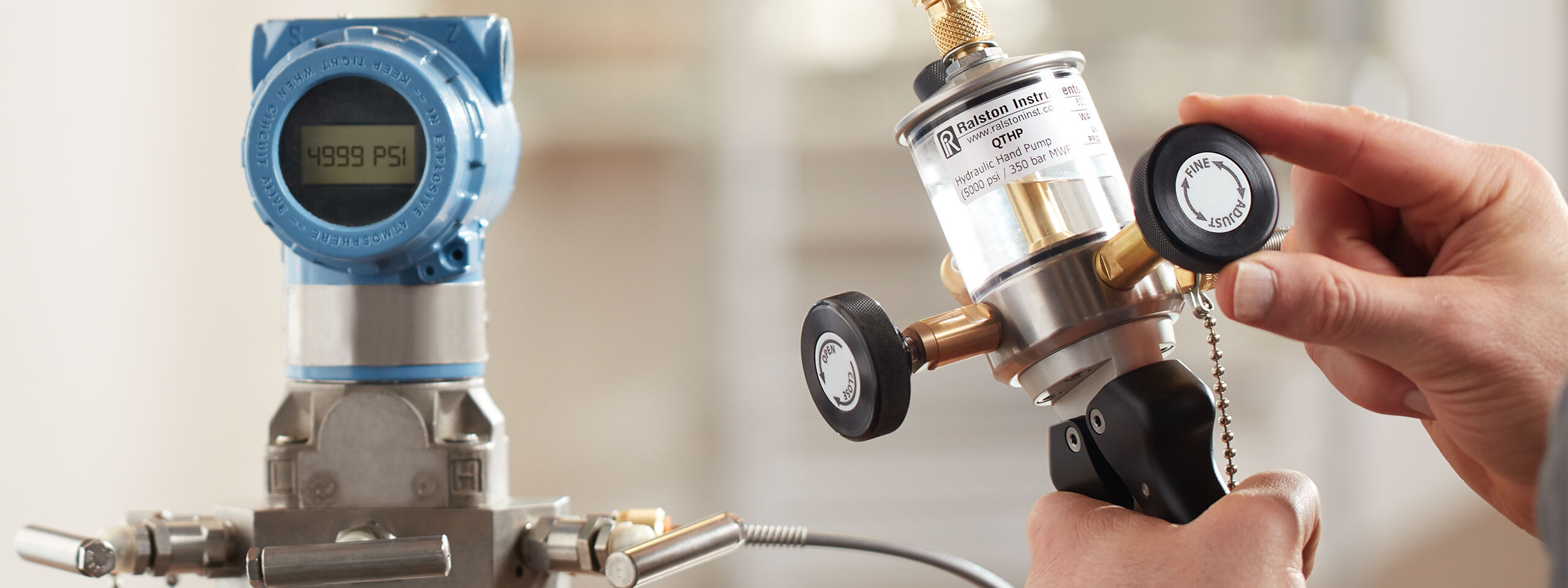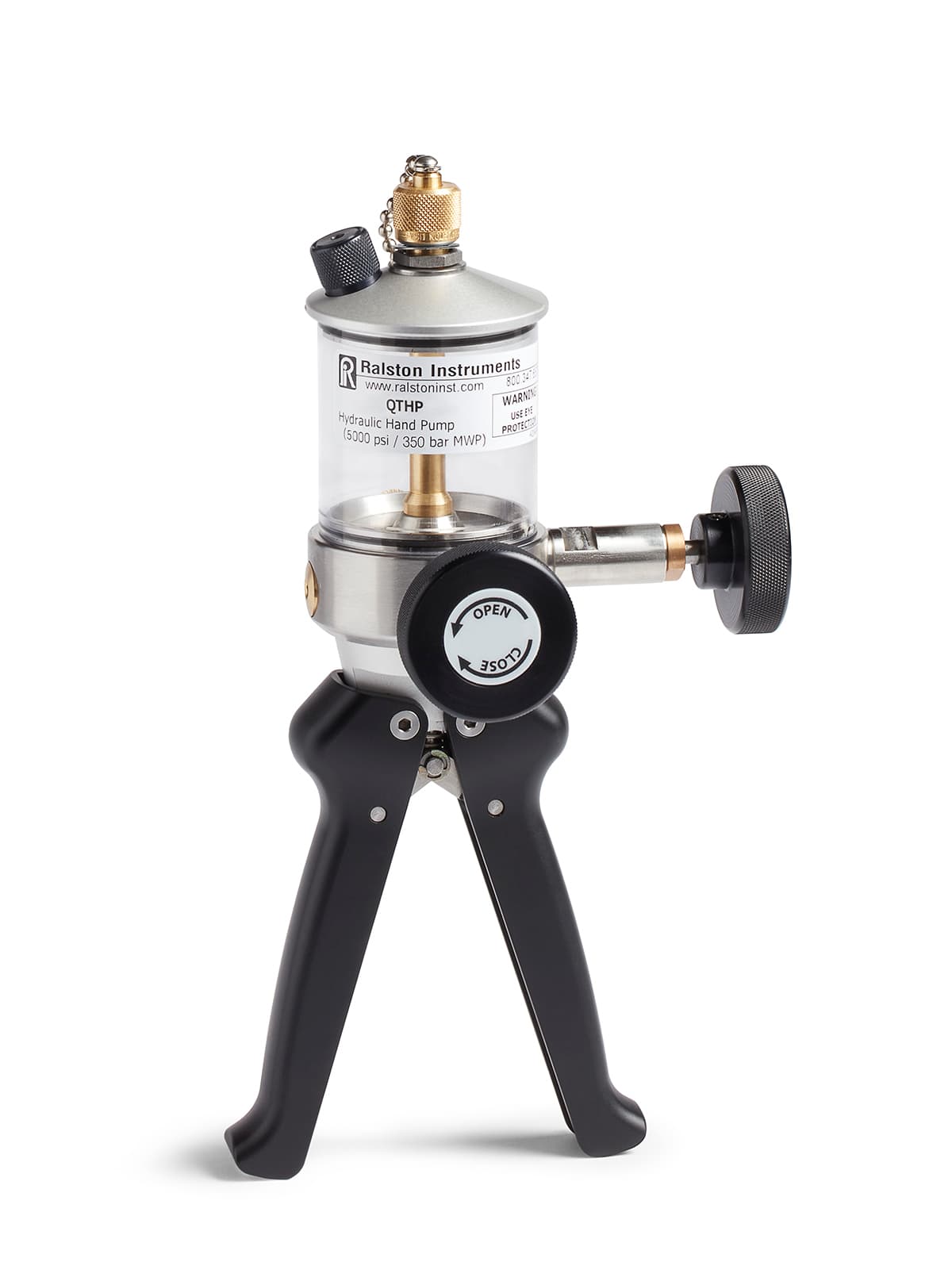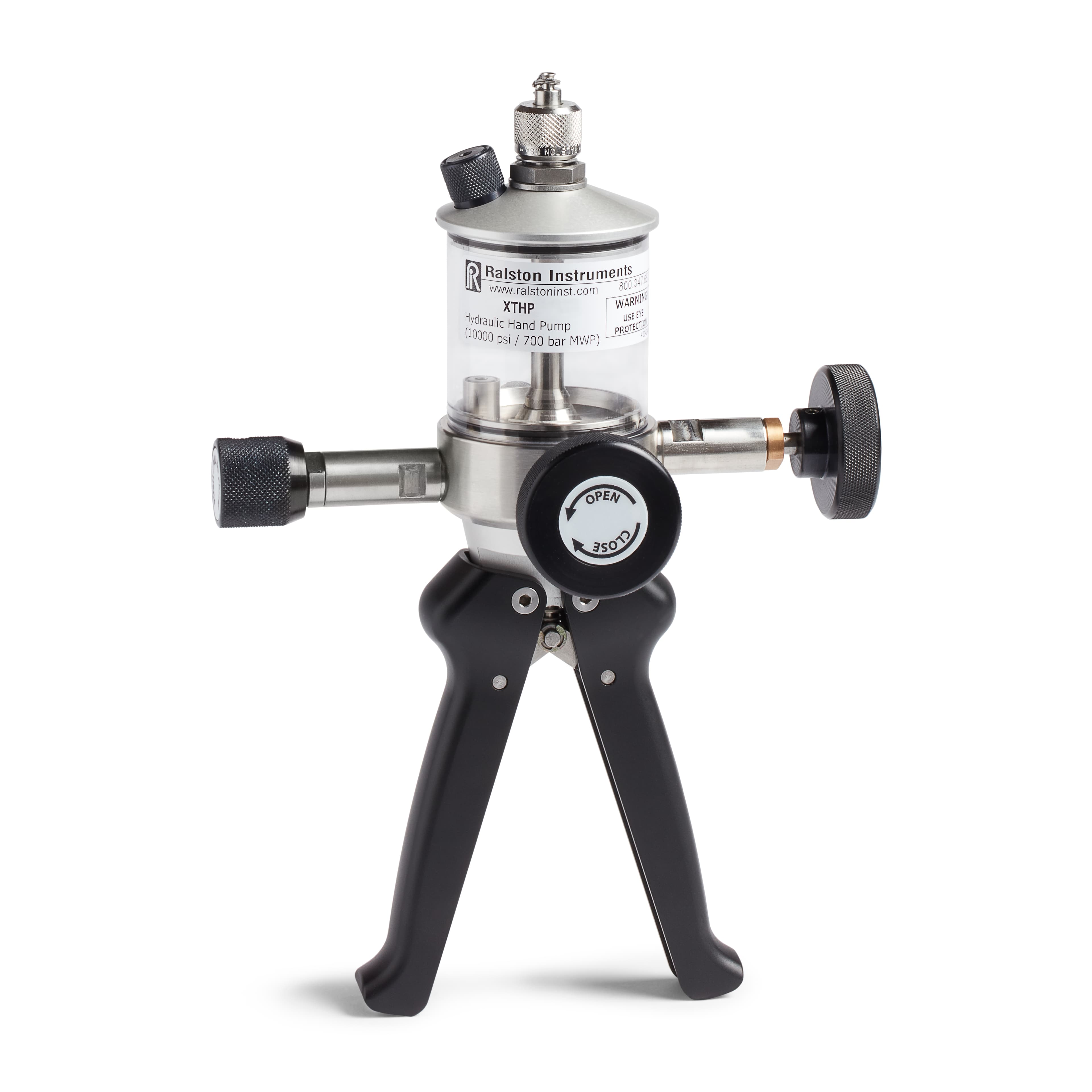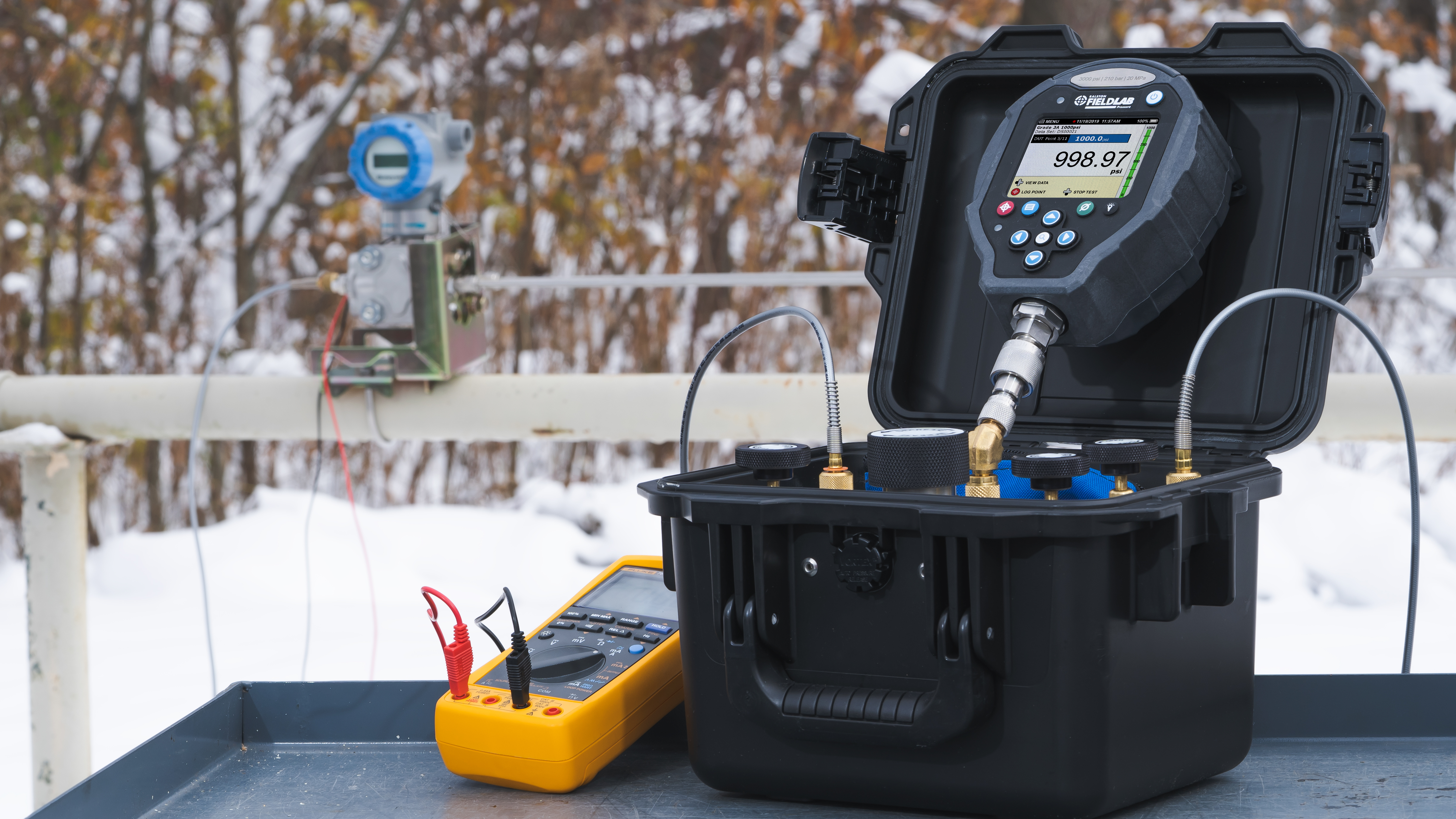Hydraulic hand pumps play an essential role in every industry that requires the testing and calibrating of pressure instruments such as pressure transmitters, gauges, and switches. From energy production and health care to construction and wastewater management, they perform a very necessary function that ultimately helps keep our global economy running safely and efficiently.
With such a wide range of uses, there’s no single hand pump that serves the needs of every application. In this article, we’ll take a look at the basic functionality of hydraulic hand pumps and outline some of their most important characteristics.
What is a Hydraulic Hand Pump?
Hand-operated hydraulic pumps convert mechanical energy into hydraulic energy (a combination of pressure and flow) by delivering hydraulic fluid under pressure through directly applied manual effort. They use the simple principle of a handle providing leverage to an internal piston. The piston then forces hydraulic fluid into the cylinder port. Water and hydraulic oil are the most common fluids, but a variety of pressure media may be used. The hydraulic energy generated is used to supply pressure for testing, adjusting, and calibrating different types of measuring instruments. This differs from pneumatic hand pumps, which generate pressure using air, a very compressible gas, rather than an incompressible fluid medium.
Hydraulic Hand Pumps in Action
Hydraulic pressure test pumps are ideal for applications where a high level of pressure (10,000 psi or 70 MPa) is required. They’re typically used with a digital pressure calibrator to calibrate pressure transmitters and pressure gauges and in pressure switch testing and leak testing. Because they are lightweight and don’t require a power source, hand-operated hydraulic pumps are ideal in field testing situations where electric power or compressed gas sources are unavailable or unsuitable. They are especially well suited to hazardous locations in the oil and gas industry where electrically powered equipment is very expensive.
Three Key Attributes of Hydraulic Hand Pumps
Hydraulic hand pumps have come a long way since their humble beginnings. Today, there are a variety of styles and pressure ranges available, and they are all generally engineered to be rugged, lightweight and easy to use. But there are a few essential characteristics of the hydraulic hand pump that are worth highlighting, particularly in comparison to their pneumatic equivalents.
- Efficiency - Hydraulic pressure is one of the most efficient methods of transferring energy. A hydraulic hand pump allows you to reach high levels of pressure with very little effort - just one or two squeezes of the handle. Because air is compressible, it would take a much higher degree of effort to reach the same levels of pressure with a pneumatic pump.
- Precision - Hand-operated hydraulic pumps are ideal in situations where a high degree of fine-tuning is required. They’re typically engineered with fine adjustment knobs that allow the operator to vary applied pressure to within .01 psi or .069 kPa.
- Stability - Hydraulic hand pumps are typically made with either cast or machined metal to limit leaks, prevent maintenance and ensure temperature and pressure stability.



